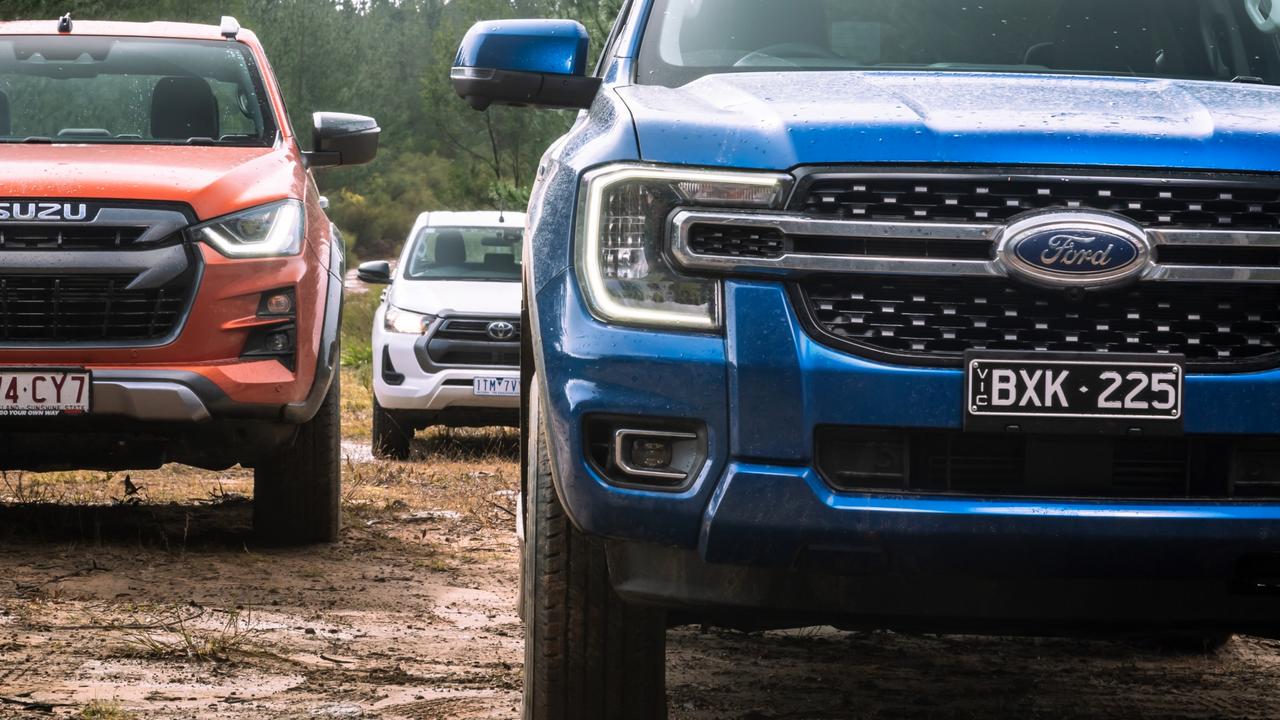After months of stock shortages and surging new-car prices, there was some good news for buyers today, as some of the biggest brands appear to be getting on top of supply issues.
More than 84,400 new cars found a home in July, a slight increase on the Covid-19 lockdown affected month the previous year.
Hyundai, Kia, Toyota and Mitsubishi all showed strong growth in July compared to the previous year, as stocks of popular models improved.
Utes and family-focused SUVs were the strongest performers last months.
The Toyota HiLux ute was the best selling vehicle in the country with 6441 examples finding a new home. It was followed by the Ford Ranger, which found just 2934 buyers. Ranger sales are expected to skyrocket in the coming months, though, as a new model has just landed in showrooms.
Family-focused SUVs filled the next places on the sales chart.
Toyota’s RAV4 (2437), Mazda’s CX-5 (2346) and Hyundai’s Tucson (2186) rounded out the top 5.
Sales of the Kia Sportage were up more than 200 per cent for the month and the Hyundai Tucson grew more than 72 per cent on the back of improved supply.
Australia’s love of big four-wheel drives and utes continued with the Toyota LandCruiser (2146), Isuzu D-Max (1930) and Mitsubishi Triton (1879) all making the top 10.
The Toyota Corolla (1982) was the only hatchback or sedan to make the bestsellers list, showing the monumental change in Australia’s buying habits in the past 10 years
The Federal Chamber of Automotive Industries chief, Tony Weber, doesn’t think the market is out of the woods yet.
“Vehicle and component manufacturing operations remain affected by plant shutdowns caused by Covid-19. Logistics, including shipping, remain unpredictable,” said Mr Weber.
“While small growth on the same month in 2021 is encouraging, we do not expect the supply of vehicles to Australia to stabilize in the near future.”
“Once again Australia is following the global trend of demand for new vehicles exceeding supply,” he said.
European brands such as Volkswagen and Skoda have been particularly hit hard, with sales down about 40 per cent for the year. Luxury marques such as Lexus and Mercedes-Benz are also struggling.
Mitsubishi Australia boss Shaun Westcott said the supply and semiconductor unpredictability wouldn’t end any time soon.
“The world is in a very unpredictable phase at the moment, which extends beyond semiconductor supply and these things will resolve themselves eventually. But we are talking about three, four or five years,” said Mr Westcott.
He also said that the increased prevalence of electric cars and plug-in hybrids, which require three to four times more semiconductors than petrol cars, was crunching supply even more.
“Every car maker has supply chain issues – a five or six month backlog. So not only is there the backlog to recover, there is also a surge in demand as more EVs and PHEVs are built,” he said.
“There is a catch-up game that is going to take a number of years to play out here.”
Tesla is showing how outside factors are affecting its supply. In the past three months the American electric car maker has sold about 200 vehicles after shipments from its Shanghai factory dried up due to Covid-19 closures.
.
